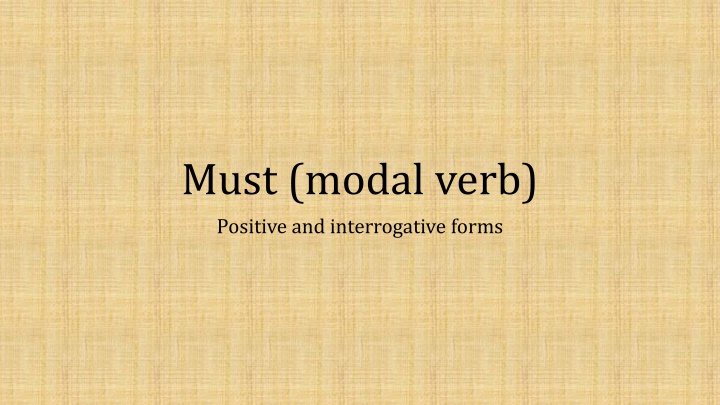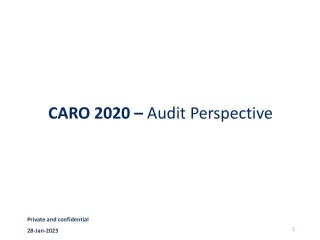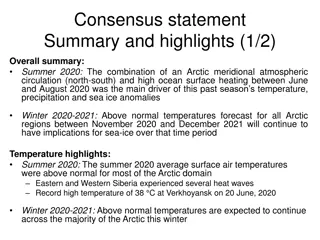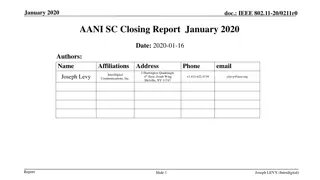
Must Modal Verb: Positive and Interrogative Forms
Explore the usage of the modal verb "must" in positive and interrogative forms for expressing obligation, certainty, or necessity. Learn how to construct sentences correctly with "must" in both positive and interrogative structures. Practice exercises and check the provided answers for better understanding.
Download Presentation

Please find below an Image/Link to download the presentation.
The content on the website is provided AS IS for your information and personal use only. It may not be sold, licensed, or shared on other websites without obtaining consent from the author. If you encounter any issues during the download, it is possible that the publisher has removed the file from their server.
You are allowed to download the files provided on this website for personal or commercial use, subject to the condition that they are used lawfully. All files are the property of their respective owners.
The content on the website is provided AS IS for your information and personal use only. It may not be sold, licensed, or shared on other websites without obtaining consent from the author.
E N D
Presentation Transcript
Must (modal verb) Positive and interrogative forms
Must (modal verb) Modal verbs in general are used for expressing a way (mode) actions are done. Must, as a modal verb, is commonly used for expressing obligation, certainty or necessity and it is followed by the base form of a verb in positive sentences, e.g. 1. 2. 3. 4. 5. 6. 7. She must wear a helmet when she rides a motorcycle. This must be the right answer. I must help him with his homework. We must have a special permit to camp in the national park. You got up very early. You must be tired. The students must complete that essay by Friday. He must talk to them immediately.
Must (modal verb) In interrogative sentences, on the other hand, must is used before the subject, e.g. 1. Must she wear a helmet when she rides a motorcycle? 2. Must I help him with his homework? 3. Must we have a special permit to camp in the national park? 4. Must the students complete that essay by Friday? 5. Must he talk to them immediately?
Must (modal verb) Write the following sentences in positive and interrogative forms using must. 1. We/follow/the rules/at school. 2. She/take/an umbrella/to Belgium? 3. They/do/their homework/today. 4. Students/bring/their books/to school? 5. He/take/his sneakers/to a PE class.
Must (modal verb) Answers 1. We must follow the rules at school. 2. Must she take an umbrella to Belgium? 3. They must do their homework today. 4. Must students bring their books to school? 5. He must take his sneakers to a PE class.
Must (modal verb) Homework Activity Book, page 25, exercise 3











